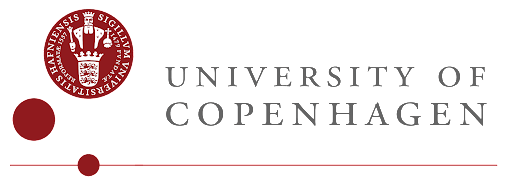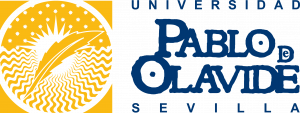University of Urbino Carlo Bo – Italy
Università degli Studi di Urbino Carlo Bo
The Università degli Studi di Urbino Carlo Bo promotes and carries out scientific research and higher education through processing and transmission of scientific knowledge ant the constant training and formation of all staff members and students, to boost their professional and cultural skills.
UniUrbino endorses cultural innovation, science and technology in society contributing to the development of the territory. While its researchers are well introduced in international activities, they also try to focus on the deep relation between the university and its industrial and cultural environment. An important mission of UniUrbino is to disseminate research results and translates scientific discovery and technological application into practical knowledge.
IRES ER – Italy
IRES Emilia-Romagna
Social and Economics Research Institute founded in 1982 by the trade union confederation CGIL Emilia-Romagna.
It carries out economic and social research, documentation, databases and data processing in collaboration with Associations, Institutes and Universities. Furthermore, it organises meetings, conferences and seminars.
Over the years IRES ER has focused its activities on Social and Economic Development, and particularly on
- industrial relations and Small and Medium Enterprises (SME);
- structural changes in the production system caused by technological innovation and the evolution of the external environment;
- analysis of the labour market, including female employment, non-standard jobs and migrant workers;
- local welfare;
- collective bargaining at the company and local level (social);
- citizienship rights.
University of Lodz – Poland
University of Lodz (UL)
The University of Lodz (UL) is one of the leading institutions of higher education in Poland. It is also one of the strongest science and research centers in the country. The 12 faculties of the University provide programs in 37 fields of study and 182 specializations. Well-equipped classrooms and laboratories together with highly qualified researchers are the foundation of the University of Lodz, which has been carrying out extensive international scientific and research cooperation with foreign academic and research centers as well as with national and international organizations, governmental institutions, local authorities and industry.
The faculty members have worked on several hundreds of nationally and internationally funded projects focusing on various aspects. The institution has gained experience and reputation as a reliable project coordinator and project partner, as well as a strong international science and research center.
SGH Warsaw School of Economics – Poland
SGH Warsaw School of Economics
SGH Warsaw School of Economics (SGH – Szkoła Główna Handlowa w Warszawie) conducts research in various areas of economics, finance, management and business administration as well as in public policy and political science. Our researchers lead the rankings of internationally recognized academics from Poland. SGH researchers are among experts of the European Commission in the fields of research & innovation as well as social policies. They advise for other institutions of the European Union such as the European Court of Auditors.
Our researchers are engaged in projects financed through competitive tenders by National Science Centre, National Centre for Research and Development along with all financing schemes for science from European Union. Within the last years, SGH has carried out 439 research projects concerning different research fields. SGH disseminates research results conducted by its employees through publications in the form of monographs and other books, as well as articles in international, national and local periodicals.
University of Erlagen – Germany
Friedrich-Alexander-Universität of Erlangen-Nürnberg
The Friedrich-Alexander-Universität of Erlangen-Nürnberg is one of the ten largest universities in Germany and one of the leading universities in Europe.
FAU’s outstanding research and teaching is reflected in top positions in both national and international rankings, as well as the high amount of DFG funding which its researchers are able to secure.
The research institutions of the university work in cooperation with industry, for example, on establishing a ‘Medical Valley’ in the Central-Franconia area, or on developing new materials, mechatronics, and communication and information technologies.
The university hosts a Max Planck research group and is closely linked to two Fraunhofer institutes located in Erlangen. In the framework of the Initiative of Excellence launched by the German Federal Government the university receives funding for a graduate school and a cluster of excellence.
University of Copenhagen – Denmark
University of Copenhagen
University of Copenhagen is one of the largest institutions of research and education in the Nordic countries. It provides over 200 programmes for study in health and medical sciences, humanities, law, science, social sciences, and theology.
The University is divided into six faculties and is also home to a number of centres, among which FAOS – Employment Relations Research Centre – is a research centre at the Department of Sociology.
Since its formation, FAOS has focused on studies of the labour market, industrial relations and, in recent years, employment relations, applying Danish, Nordic and European perspectives.
FAOS aims at:
- adding to the existing fund of basic knowledge of employment relations, thus extending our understanding of the complex pattern of development currently taking place on Europe’s labour markets;
- working in close association with related research environments in Denmark and other countries;
- contributing to the training of PhD-students;
- publishing research results and to maintain a dialogue with the labour market parties and with administrative/political institutions.
FAOS is also a national centre under the European Industrial Relations Observatory (EIRO).
University of Maynooth – Ireland
Maynooth University
Maynooth University is one of the four constituent universities of the National University of Ireland and in 2019 was placed in the global top 50 universities under 50 years old in the Times Higher Education World University Rankings. It is located in the University town of Maynooth, 25km from the centre of Dublin, Ireland’s capital city. With more than 12,000 students, Maynooth is Ireland’s fastest-growing university, and has a distinctive disciplinary profile compared to other universities in Ireland, with research and teaching strengths in humanities and social sciences, science, electronic engineering, business, law and teacher education.
Maynooth University School of Law and Criminology is the fastest growing Law School in Ireland, and amongst the largest common law academic units in the EU. It offers a number of popular undergraduate and postgraduate degree programmes, educating over 2000 students.
The School places a very strong emphasis on research, and staff members regularly publish in leading international academic journals. The School has particular research strengths in the areas of labour law and policy, International Justice, EU Law and policy, law and technology, criminology and criminal justice, and comparative legal theory. In addition, our programmes highlight the practical application of legal study, and underline the importance of legal skills, such as negotiation and advocacy.
In 2020, the School of Law and Criminology received an Athena SWAN Bronze Award, which recognizes work undertaken to advance gender equality for staff and students in Higher Education.
ASSOCIATE ORGANIZATIONS
- FPU – Denmark
- VC – Germany
- Ver.di – Germany
- Fundacion 1° de Mayo – Spain
- SEPLA – Spain
- SPICA – Spain
- Iberia – Spain
- FILT CGIL – Italy
- FIT CISL – Italy
- UILT – Italy
- ECA – Belgium
- KSPTL NSZZ Solidarnosc – Poland














